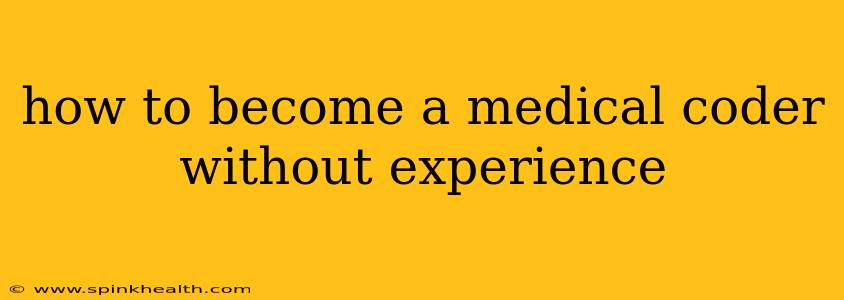How to Become a Medical Coder Without Experience: A Journey from Zero to Hero
The world of medical coding can seem daunting if you lack prior experience, but it's entirely achievable to break into this in-demand field. This isn't a get-rich-quick scheme; it requires dedication and a strategic approach. Think of it as a captivating adventure, where each step brings you closer to a rewarding career. Let's embark on this journey together!
My name is Alex, and I've been a medical coder for over a decade. I remember the exact moment I decided to pursue this path – a moment of clarity amidst the chaos of a hospital internship. I wasn't a doctor, but I saw the critical role coding played in the smooth functioning of the entire healthcare system. This story isn't just about my own journey, it's about sharing the roadmap I wish I'd had when I started.
1. Understanding the Landscape: What Does a Medical Coder Do?
Before diving into the "how," let's address the "what." Medical coders translate medical diagnoses, procedures, and services into standardized alphanumeric codes. These codes are used for billing, insurance claims processing, and maintaining medical records. Accuracy is paramount, as incorrect coding can lead to financial losses for healthcare providers and delays in patient care. Think of it as the crucial link between medical care and financial reimbursement.
2. Essential Education and Training: Laying the Foundation
While experience is valuable, it's not a prerequisite. The key is obtaining the right education. Several paths lead to success:
-
Associate Degree in Health Information Technology (HIT): This provides a comprehensive foundation in medical coding, billing, and healthcare administration.
-
Certificate Programs in Medical Coding: These are shorter, focused programs ideal if you're already familiar with basic healthcare terminology. Many community colleges and vocational schools offer these programs.
-
Online Courses and Self-Study: Numerous online resources, such as Coursera, edX, and various coding schools, offer comprehensive training. These can be excellent supplements or even the primary pathway, but be sure to choose reputable programs.
Choosing the Right Program: Look for programs accredited by the American Health Information Management Association (AHIMA). Accreditation ensures quality education and increases your job prospects.
3. Mastering the Codes: ICD-10 and CPT
The heart of medical coding lies in understanding the two main coding systems:
-
ICD-10-CM (International Classification of Diseases, 10th Revision, Clinical Modification): This system categorizes diseases and medical conditions.
-
CPT (Current Procedural Terminology): This system categorizes medical procedures and services.
Mastering these codes requires diligent study, practice, and ideally, hands-on experience with coding software.
4. Gaining Experience: Building Your Portfolio
Now comes the crucial part – gaining experience. Here’s how, even without prior medical experience:
-
Internships: Seek internships at hospitals, clinics, or billing companies. These provide invaluable practical experience and build your professional network.
-
Volunteer Work: Offer your coding skills (even if basic) to non-profit organizations or free clinics. This demonstrates your commitment and expands your experience base.
-
Freelancing Platforms: Consider offering your coding services on platforms like Upwork or Fiverr (once you have basic skills). This allows you to build your portfolio and gain client feedback.
-
Create a Practice Portfolio: Practice coding using sample medical records or case studies available online. This allows you to build confidence and showcase your abilities to potential employers.
5. Certification: Proving Your Proficiency
Earning a certification significantly enhances your credibility and marketability. AHIMA offers the Registered Health Information Technician (RHIT) and Registered Health Information Administrator (RHIA) certifications. Passing these exams showcases your competency and professionalism.
6. Networking: Connecting with Professionals
Networking is vital. Attend industry events, join professional organizations like AHIMA, and connect with medical coders on LinkedIn. This opens doors to mentorship, job opportunities, and valuable insights.
7. How Long Does it Take?
The timeline varies depending on your chosen path. A certificate program might take a few months, while an associate degree takes two years. Adding in internship or volunteer time, realistically, you could be job-ready within 1-2 years of dedicated effort.
Frequently Asked Questions (FAQs):
H2: What are the job prospects for medical coders?
The demand for medical coders is consistently high. The aging population and the growing complexity of healthcare contribute to a robust job market. However, competition exists, so strong skills and certifications are key.
H2: Is a college degree always necessary?
While a degree provides a broader foundation, certificate programs and strong self-study can also lead to successful medical coding careers. Focus on demonstrating your skills and obtaining relevant certifications.
H2: How much do medical coders make?
Salaries vary based on experience, location, and certification. Entry-level coders can expect a reasonable salary, with potential for significant growth as experience and skills increase.
H2: Can I work remotely as a medical coder?
Yes! Many medical coding positions are remote, offering flexibility and work-life balance.
This journey to becoming a medical coder is a marathon, not a sprint. With dedication, proper training, and a strategic approach, you can transform your passion into a rewarding and impactful career. Remember, every step you take brings you closer to your goal. Good luck on your adventure!

